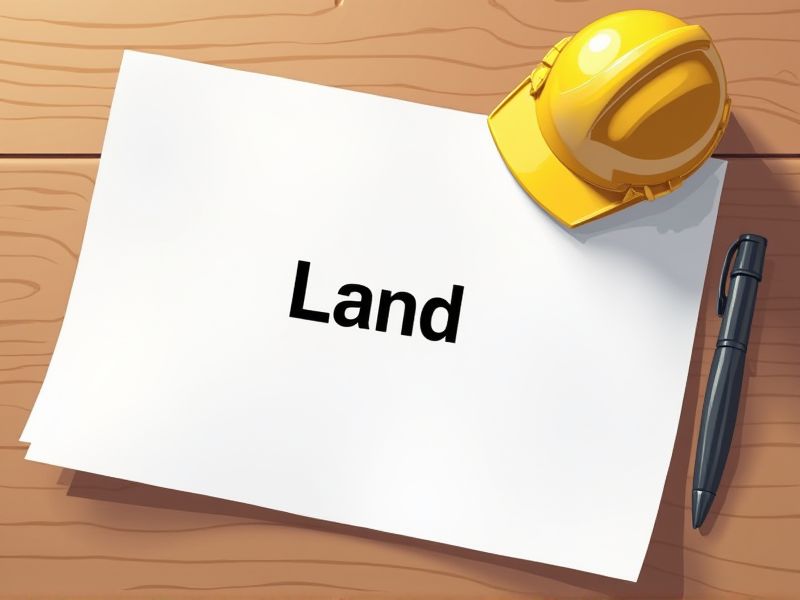
Land surveying is a crucial field that involves precise measurement and mapping of geographical areas, demanding a high level of accuracy and expertise. Certification ensures that a land surveyor meets industry standards and possesses the necessary skills to perform their duties effectively. It also instills trust in clients and stakeholders, affirming the surveyor's commitment to professionalism and high-quality service. Key certifications relevant to land surveyors include the following.
Professional Land Surveyor (PLS) License
Obtaining a Professional Land Surveyor (PLS) license ensures adherence to industry standards, maintaining the integrity and accuracy of land measurements. A PLS license establishes a surveyor's credibility, allowing them to legally define property boundaries, which can prevent legal disputes. It plays a crucial role in public safety and infrastructure development by providing reliable data for construction projects. The license also enhances career opportunities and professional recognition, differentiating credentialed surveyors in the field.
Certified Survey Technician (CST)
Land surveying relies on precision and accuracy, and a Certified Survey Technician (CST) ensures these critical aspects are consistently upheld. A CST provides essential technical support, allowing land surveyors to efficiently handle complex data and measurements. The certification process guarantees that technicians meet industry standards, thus reducing errors and improving project outcomes. By having a CST, a land surveying team can enhance productivity, ensuring projects are completed within budget and on schedule.
Registered Professional Surveyor (RPS)
A Registered Professional Surveyor (RPS) is essential to ensure the accuracy and legality of land boundaries, which prevents disputes and clarifies property ownership. They possess specific qualifications and state licensure, demonstrating competency in applying rigorous standards critical for precise measurement and documentation. Their expertise ensures that construction projects adhere to zoning laws and environmental regulations, minimizing legal risks for developers and landowners. By employing an RPS, stakeholders gain confidence that land development aligns with regional planning and sustainable practices.
Certified Boundary Surveyor (CBS)
A Certified Boundary Surveyor (CBS) ensures accurate determination of property lines, crucial for preventing legal disputes over land ownership. Their expertise helps in verifying and documenting precise boundaries, which is essential for property development and construction projects. Local governments often require official documentation from a CBS to approve land subdivisions and improvements. Hiring a CBS guarantees compliance with national and local regulations, mitigating potential legal and financial risks.
Certified Construction Surveyor (CCS)
Certified Construction Surveyors are essential for land surveying due to their advanced expertise in interpreting construction plans, ensuring project alignment with design intents. Their certification demonstrates proficiency in maintaining compliance with local and national regulations, which significantly reduces legal and financial risks for projects. They possess the technical knowledge to utilize advanced surveying equipment accurately, enhancing the precision of measurements and data collection. Their insights improve site layout and topographic assessments, bolstering overall project efficiency and effectiveness.
GIS Professional (GISP)
A GISP certification often enhances a land surveyor's proficiency in managing and interpreting spatial data, which is crucial for accurate mapping and analysis. The integration of GIS into surveying processes can improve data visualization and decision-making, leading to more efficient project outcomes. Knowledge in GIS technology enables land surveyors to better handle large datasets and apply geographic principles to complex terrain challenges. The added expertise in geographic information systems through a GISP helps in ensuring compliance with regulatory standards and improving communication with stakeholders.
Certified Photogrammetrist (CP)
A Certified Photogrammetrist (CP) is essential for land surveyors because they possess specialized knowledge in accurately interpreting aerial photos and satellite images. Their expertise ensures precise topographic mapping, which is critical for land development and planning. Utilizing a CP reduces the risk of errors in data collection that can lead to costly land boundary disputes. Collaboration with a CP enhances the overall quality and reliability of survey results, which stakeholders heavily depend upon for decision-making.
Certified Land Surveying Technician (CLST)
The Certified Land Surveying Technician (CLST) credential assures employers of a technician's proficiency and expertise in land surveying practices. Properly certified technicians can improve accuracy and reliability in surveying tasks, reducing errors and project delays. Possessing the CLST often leads to increased job opportunities and career advancement for technicians. Adopting standardized practices through certification can reduce legal hurdles in land-related projects, leading to smoother implementation.
AutoCAD Certified Professional
Obtaining an AutoCAD Certified Professional credential enhances a land surveyor's credibility and proficiency in utilizing industry-standard software. Mastery in AutoCAD allows surveyors to produce precise digital maps and layouts, critical for accurate land assessment. The certification signifies to employers and clients a verified level of expertise, which can lead to increased job opportunities and client trust. With complex projects often requiring precise planning, having the certification ensures that land surveyors can efficiently collaborate with engineers and architects.
OSHA 30-Hour Construction Safety Certification
Land surveyors often work on construction sites where potential hazards, such as heavy machinery or uneven terrain, are prevalent, necessitating OSHA 30-Hour Construction Safety Certification to enhance their safety awareness. The certification educates surveyors on recognizing, avoiding, and preventing job site hazards, reducing the risk of accidents. Compliance with OSHA standards through certified training helps employers minimize liability and adhere to safety regulations. Acquiring the certification can also make surveyors more competitive in the job market by demonstrating a commitment to safety standards.
Summary
When you obtain certifications as a land surveyor, your credibility and professional standing significantly increase. This often leads to enhanced job prospects and competitive salary packages. Employers tend to prioritize certified professionals, ensuring you have access to more advanced projects. Consequently, your career growth and industry reputation are positively impacted.
